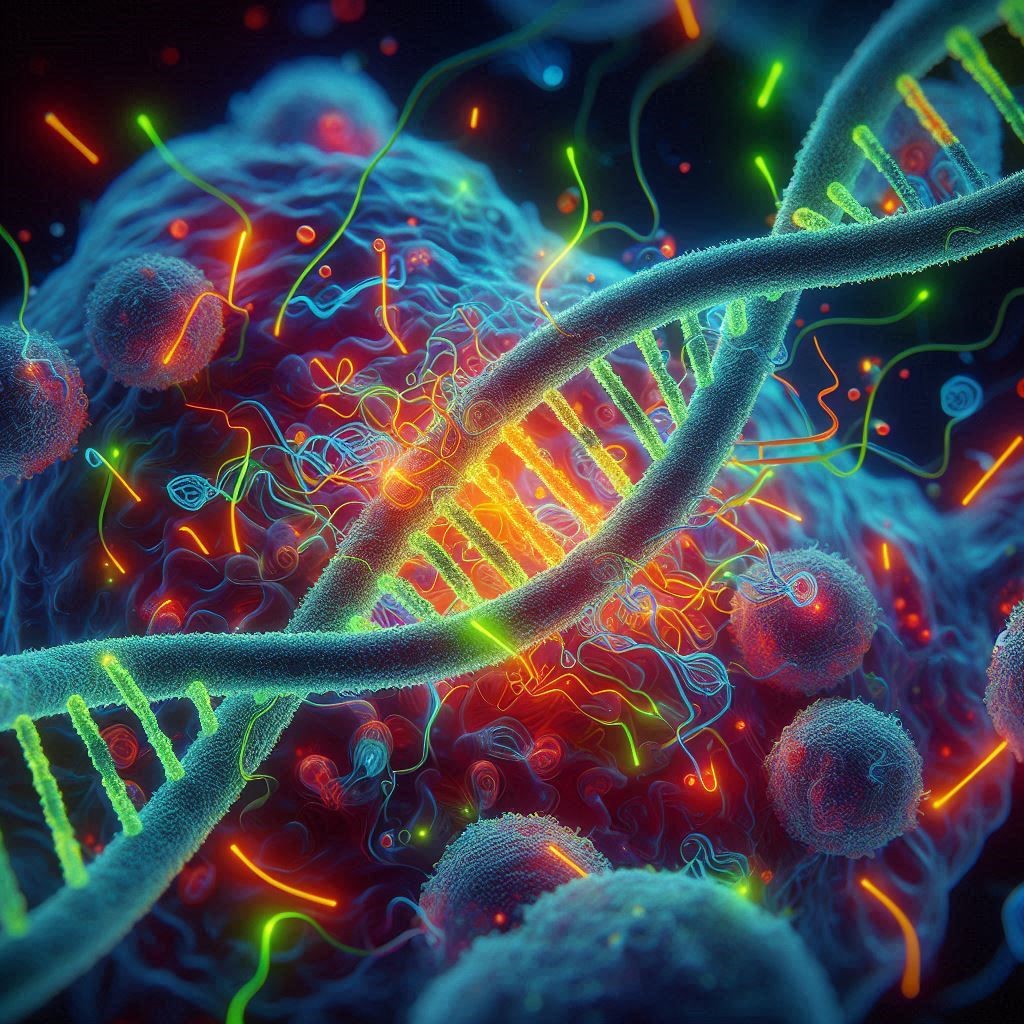Introduction to Juliet Johnston and her work
Queer Science Juliet Johnston. In the vast landscape of science, technology, engineering, and mathematics (STEM), diversity often takes a backseat. Yet, amidst this challenge stands Juliet Johnston—a beacon for LGBTQ+ inclusion in these vital fields. Known for her groundbreaking work under the banner of Queer Science, Johnston is not just advocating for representation; she’s redefining what it means to be inclusive in STEM education and research. Her mission centers around creating spaces where every voice can contribute to scientific advancement. As we delve deeper into her inspiring journey, you’ll discover how one person’s passion can ignite change across an entire community and beyond.
The lack of LGBTQ+ representation in STEM fields
LGBTQ+ representation in STEM fields remains alarmingly low. Many individuals feel marginalized or invisible within these spaces. This lack of visibility can discourage aspiring scientists, engineers, and mathematicians from pursuing their passions.
Research shows that diverse teams produce better results. Yet the underrepresentation of LGBTQ+ voices stifles creativity and innovation within scientific inquiry.
Many professionals face implicit biases or outright discrimination when entering academia or industry roles. These challenges create a hostile environment for talented individuals who could contribute significantly to their fields.
Moreover, educational institutions often fail to provide supportive resources for LGBTQ+ students interested in science and technology careers. The absence of mentorship programs exacerbates feelings of isolation.
Addressing this gap is crucial not just for equity but also for the advancement of knowledge across disciplines. Diverse perspectives lead to groundbreaking discoveries—something our world desperately needs now more than ever.
Queer Science Juliet Johnston efforts for inclusivity in science education
Juliet Johnston recognizes the critical need for a more inclusive science education. She advocates for curricula that reflect diverse perspectives, ensuring that LGBTQ+ voices are heard and valued.
Through workshops and outreach programs, she engages educators to rethink their teaching strategies. Johnston encourages them to incorporate stories of queer scientists and researchers into lessons. This approach not only enriches the curriculum but also empowers students from marginalized backgrounds.
Johnston’s initiatives include developing resources aimed at promoting representation in STEM fields. These tools help teachers create safe spaces where all students can explore their identity while learning about science.
Her dedication shines brightly during community events, where she highlights the importance of mentorship for LGBTQ+ youth interested in pursuing STEM careers. By fostering these connections, Johnston is helping to cultivate a new generation of scientifically curious minds who feel seen and supported in their journeys.
Diversity and the advancement of Queer Science Juliet Johnston
Diversity in scientific research fosters creativity and innovation. When different backgrounds come together, fresh perspectives emerge. These varied viewpoints often lead to groundbreaking discoveries.
A diverse team can approach problems from multiple angles. This enhances the ability to solve complex issues that single-minded thinking might overlook. Each individual brings unique experiences, enriching collaborative efforts.
Research shows that inclusive teams outperform homogeneous ones. They produce higher-quality work and demonstrate greater resilience in facing challenges. A culture of diversity encourages open dialogue, enabling members to share ideas freely.
Moreover, embracing diversity helps researchers connect with broader communities. Science impacts everyone, so representation matters when addressing societal needs and concerns. It ensures that findings are relevant across demographics.
Fostering inclusivity is not just a moral imperative; it’s essential for advancing science itself. As we embrace diversity, we pave the way for revolutionary advancements in every discipline within STEM.
Challenges faced by LGBTQ+ individuals in STEM
LGBTQ+ individuals in STEM often confront unique challenges that hinder their progress and well-being. Discrimination can manifest in subtle ways, affecting workplace dynamics and professional relationships.
Many LGBTQ+ scientists experience isolation. When colleagues are unsupportive or uninformed about gender identity and sexual orientation, it creates a barrier to collaboration and camaraderie.
Moreover, the pressure to conform can be overwhelming. Some may feel compelled to hide their identities for fear of backlash or exclusion from opportunities.
Mental health issues also emerge as significant concerns. The stress stemming from both societal expectations and workplace environments can lead to anxiety and depression.
The lack of role models makes navigating these fields even more difficult. Without visible representation, aspiring queer scientists may struggle to envision themselves within these spaces.
Success stories and impact of Johnston’s work
Juliet Johnston’s work has sparked a wave of change in STEM education. Many students now feel empowered to embrace their identities. They find support from programs that celebrate diversity.
One notable success story is the launch of inclusive curriculum materials across various institutions. These resources have transformed classrooms into safe spaces for LGBTQ+ learners.
Johnston’s influence extends beyond educational settings. She has fostered partnerships between organizations, creating mentorship opportunities for young queer scientists. This network strengthens community ties and promotes collaboration among diverse groups.
Moreover, her speaking engagements inspire both students and educators alike. Her ability to share personal experiences resonates deeply, encouraging others to advocate for inclusivity.
With each initiative, Johnston proves that representation matters in science fields. Her impact is felt not just locally but also on a global scale as she challenges traditional norms within academia and research environments.
Continuing the fight for equality in STEM
The fight for equality in STEM must persist. Advocacy groups, like Queer Science Juliet Johnston’s initiatives, are vital in pushing these conversations forward. They create spaces where LGBTQ+ individuals feel safe and supported.
Educational programs aim to dismantle outdated stereotypes. Workshops and mentorships foster growth among emerging scientists from diverse backgrounds. Each effort builds a more inclusive environment.
Institutional changes are equally important. Universities and organizations need policies that actively promote diversity. Representation matters at every level of academia and research.
Community support networks thrive on collaboration, sharing resources to uplift marginalized voices. By connecting professionals across fields, they can amplify their impact.
The road ahead is long but promising as allies join forces with the LGBTQ+ community in STEM. Everyone has a role to play in fostering an equitable landscape where innovation flourishes without barriers or bias.
How Queer Science Juliet Johnston
Juliet Johnston is a transformative figure in the realm of STEM. Her passion for inclusive education has sparked significant change, paving a new path for LGBTQ+ representation.
Through workshops and outreach programs, she creates safe spaces where diverse voices can thrive. These environments encourage students to explore science without fear of judgment or exclusion.
Johnston’s initiatives also emphasize mentorship. By connecting young queer scientists with role models, she fosters confidence and ambition among underrepresented groups.
Her advocacy extends beyond classrooms. Juliet collaborates with institutions to implement policies that promote diversity at every level of research and education.
As more individuals from various backgrounds enter STEM fields, innovation flourishes. Their unique perspectives lead to groundbreaking discoveries that benefit everyone.
Johnston’s work continues to inspire future generations who will shape the scientific landscape into one that’s vibrant and inclusive.

Conclusion: The importance of diversity and inclusion in science
Diversity and inclusion play critical roles in shaping the future of science. The contributions of individuals from various backgrounds foster innovation and creativity, enhancing research outcomes. When people feel valued for who they are, they bring unique perspectives that challenge conventional thinking.
Queer Science Juliet Johnston exemplifies these values through her tireless work toward inclusivity in STEM fields. Her advocacy highlights the urgent need to address the barriers faced by LGBTQ+ individuals within scientific communities. By promoting a culture where everyone can thrive, we unlock potential that has long been stifled.
As more voices join this vital conversation about equality, we move closer to a world where diversity is not just accepted but celebrated as an essential component of scientific progress. Embracing different identities enriches our understanding while driving breakthroughs that benefit society at large.
The journey towards true inclusivity continues, fueled by passionate advocates like Johnston who strive to create spaces where everyone belongs and contributes openly without fear or prejudice. With ongoing efforts to dismantle systemic barriers and promote representation across all levels of education and research, we are paving new paths for future generations in STEM.



